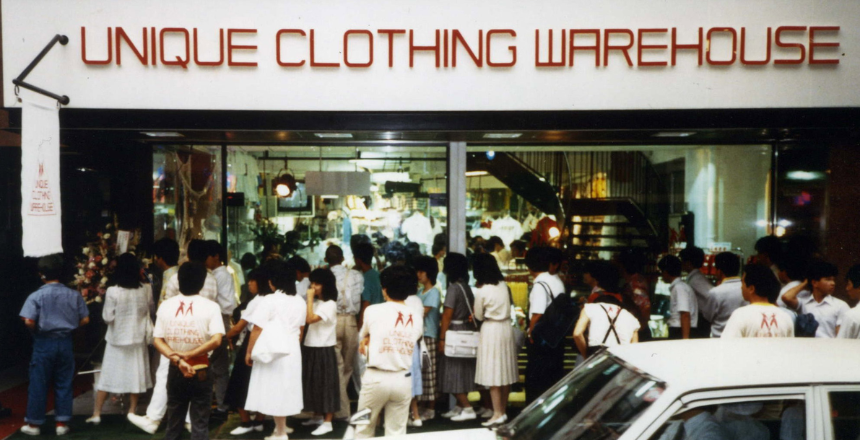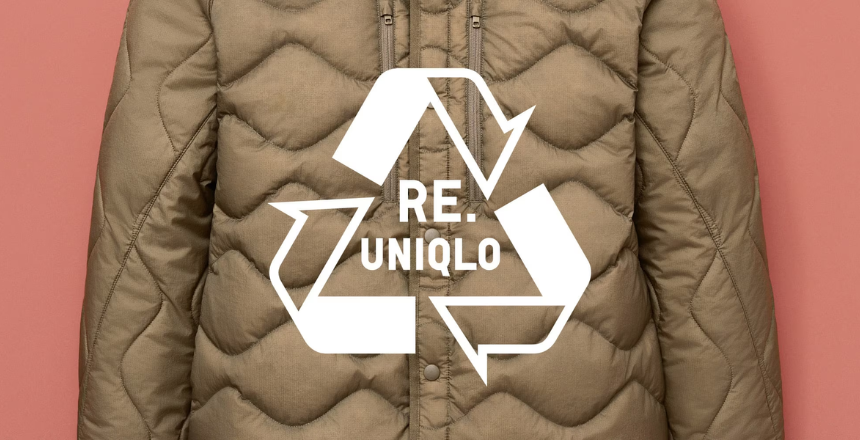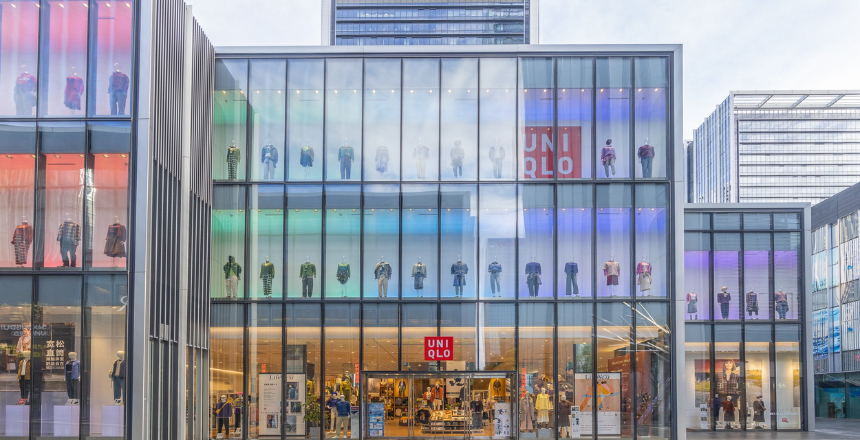UNIQLO’s Beginnings
The story of UNIQLO started in 1972, when Tadashi Yanai transformed his father’s collection of 22 men’s tailoring stores into a more expansive apparel enterprise. In 1984, Yanai launched the first UNIQLO store in Hiroshima, originally named Unique Clothing Warehouse. This marked the start of a pivotal shift from specialised tailoring to general casual wear. Yanai was inspired by his experiences with Western retail models during his visits to Europe and the United States. This initial transformation was critical, as it laid the foundations for what would become a global retail phenomenon.
Repositioning UNIQLO: A Shift In Perception
For many years, UNIQLO was mainly seen as a budget retailer known for its low-cost, basic garments. This perception changed significantly in 2004 with the introduction of UNIQLO’s Global Quality Declaration, which underscored a commitment to high-quality, affordable clothing. The launch of premium fleece jackets especially helped shift its image from inexpensive to stylish, demonstrating the brand’s ability to deliver value without compromising quality.

Global Expansion Of UNIQLO
UNIQLO has since expanded to over 2,400 stores in 25 countries worldwide. This swift expansion reflects its effective strategy and acceptance in diverse markets. UNIQLO dominates the Asian market, with more than 800 stores in Japan alone, making it the continent’s largest apparel retailer. The financial success of this growth is apparent in its soaring revenues and profitability, with Fast Retailing, UNIQLO’s parent company, consistently seeing increases in market value and shareholder returns.
Innovation And Customer-Centricity At UNIQLO
UNIQLO’s success is largely due to its innovative approach to fashion retail. Unlike its competitors, who pursue fast-fashion trends, UNIQLO concentrates on timeless essentials with unique functional properties. Technologies such as AIRism and LifeWear are more than just marketing gimmicks—they represent genuine innovations in fabric and design that cater to specific customer needs. This focus on practical innovation extends to UNIQLO’s supply chain and product development strategies, meticulously orchestrated to align with consumer demands and market trends.
UNIQLO’s Dedication To Quality
UNIQLO’s pledge to quality is not merely a marketing tactic, but a fundamental aspect of its business ethos. The brand invests substantially in research and development to ensure that its products are not only stylish but also incorporate the latest advancements in textile technology. The development of HeatTech is a perfect example of this, having revolutionised winter attire by offering warmth without the usual bulk associated with thermal clothing.

Unique Selling Points: Why Consumers Choose UNIQLO
UNIQLO stands out by offering straightforward, high-quality clothing that appeals to a universal audience. Its “Made for All” philosophy champions inclusivity and accessibility, striking a chord with a global customer base.
UNIQLO’s Strong Corporate Values
Tadashi Yanai’s leadership is pivotal to UNIQLO’s ethos and international strategy. His vision for the company transcends mere profit-making; it encompasses a dedication to social responsibility and ethical practices, which are integral to the company’s fabric. The management principles established by Yanai prioritise customer satisfaction, community involvement, and continual innovation, all essential to the brand’s identity and success.
Challenges In Global Strategy
Although UNIQLO has secured a significant global presence, it continues to navigate challenges such as brand differentiation and market adaptation. Its product offerings, while popular, must constantly evolve to cater to varied consumer tastes and preferences across different regions. Moreover, the brand’s strategy to further penetrate Western markets requires adjustments in aspects like sizing and style to better meet local consumer preferences.

UNIQLO’s Commitment To Sustainability
UNIQLO’s commitment to sustainability is crucial not only for environmental reasons but also for sustaining brand integrity and customer loyalty. Initiatives focused on reducing environmental impact and promoting ethical practices throughout the supply chain are key to UNIQLO’s business approach.
Conclusion
UNIQLO’s evolution from a regional Japanese retailer to a global fashion icon is a compelling narrative of strategic innovation, commitment to quality, and visionary leadership. With its foundations deeply rooted in universally resonant values and an unwavering commitment to sustainability and inclusivity, UNIQLO is not merely on a trajectory to become the world’s leading apparel retailer—it’s shaping the future of fashion. Watch as UNIQLO continues to innovate and inspire, securing its position in the wardrobes and hearts of people globally for many years to come!
This article, originally authored by Florence, was first published in TrustDeals.co.uk on 24 May, DOI: https://www.trustdeals.co.uk/articles/the-rapid-rise-of-uniqlo. It is reprinted here with permission from the publisher and the author(s). Any modifications made to the article since its original publication are noted in the text.




